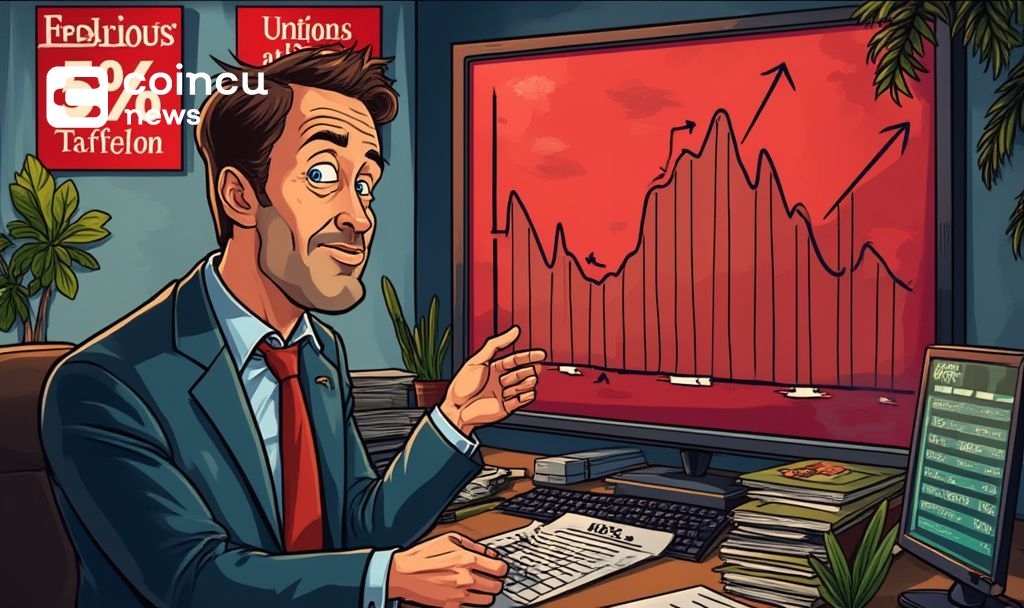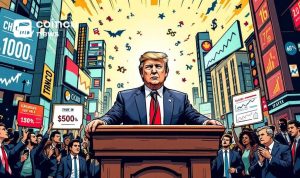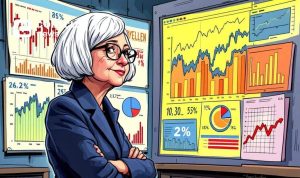- UBS predicts a 5% US inflation rate due to tariffs.
- Federal Reserve may consider interest rate cuts.
- Inflation impacts consumer prices and economic policies.

April 3rd, BlockBeats News reported UBS analyst Eamonn Sheridan’s prediction on US inflation potentially reaching 5% due to proposed tariffs. This announcement highlights expectations of significant economic shifts.
The projected inflation increase may compel the Federal Reserve to consider interest rate cuts, impacting future economic strategies and market stability.
Federal Reserve’s Potential Rate Cuts Amid Inflation Concerns
UBS forecasts a 5% US inflation rate impact due to proposed tariffs. Analyst Eamonn Sheridan suggests that should these tariffs be enforced, the resulting import costs will significantly influence consumer prices. This prediction aligns with increasing concerns over potential economic disruption and the reevaluation of monetary policy.
Potential Federal Reserve interest rate cuts may counteract inflation’s growth effects. Economists speculate that if inflation is deemed transitory, rate cuts could ensue to stimulate growth. This illustrates the delicate balance central banks maintain in managing economic health amid
.
Market analysts and investors are closely observing these forecasts, with key figures highlighting the broader implications for both domestic and international markets. The heightened awareness around inflation underscores the ongoing debate regarding fiscal policies’ roles in global economic landscapes.
Historical Context, Price Data, and Expert Insights
Between 2008 and 2009, a significant recession period, the Federal Reserve cut interest rates to near zero levels, showcasing how critical interest rate policies can be during economic challenges.
In recent memory, Federal Reserve policy shifts have been closely linked to broader economic outcomes. Historical rate adjustments serve as benchmarks for current strategies, with experts emphasizing the cyclical nature of such economic tools.
Ongoing economic analysis and historical data suggest that potential inflation adjustments will require nuanced regulatory approaches. Experts note that central bank policies, informed by past occurrences and new market dynamics, remain crucial in navigating such complex economic challenges.
*No relevant quotes or updates available regarding proposed tariffs, the US inflation rate, or potential Fed interest rate decisions from UBS analysts or leadership at this time.*























